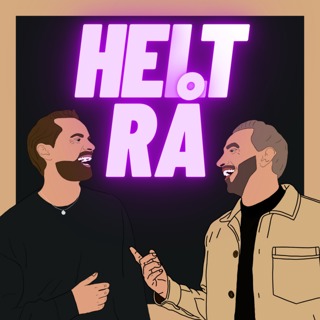
Ep. 6: Badges and Education
In episode 6 I speak with Jade Forester who helps run marketing and community for the Open Badge Alliance. Education today is broken and the value of traditional institutions is declining especially as the popularity of open courses such as Udemy and Coursera continues to increase. One solution to this might be open badges which are designed to represent you and your skills more accurately. In this episode Jade shares her insight around the problems with today's modern education system and how open badges can very well be the future of education. (Music by Ronald Jenkees)
1 Okt 201454min

Ep. 5: Recruiting 2.0
Guy Halfteck, the CEO of Knack, joins me to explore how games and big data are impacting the way we attract and manage talent within organizations. This is currently a huge problem within many organizations around the world as over 70% of companies site "capability" gaps as one of their top five challenges. Can games and big data be the solution? Find out! (Music by Ronald Jenkees)
24 Sep 201453min

Ep. 4: Trust and the Future of Work
This week my guest is Charlie Green who is the co-author of The Trusted Advisor and author of Trust-Based Selling. He's a world leading authority on the subject of trust and in this episode we explore trust in the workplace, trust in our personal lives and everything in between. Definitely a must listen to episode! (Music by Ronald Jenkees)
10 Sep 201451min

Ep. 3: Smart Cities and Cities of The Future
Episode 3 of the future of work podcast explores smart cities and future cities. The guest is Deb Acosta who is the chief innovation officer for the city of San Leandro. We explore topics such as transportation networks, connectivity, business culture, and how to actually create a city of the future, enjoy! (Music by Ronald Jenkees)
10 Sep 201459min

Ep. 2: Creating Distributed Teams
Episode 2 of the future of work podcast explores why organization's should consider building distributed teams, what the benefits of distriuted teams are, and how to build distributed teams. We touch on flexible work, freelanacers, and telecommuting. My guest is Stephane Kasriel, the SVP of product and engineering at Elance-Odesk! (Music by Ronald Jenkees)
27 Aug 201438min

Ep. 1: Millennials in the Workplace
Episode 1 explores millennials and the impact that they are having on organizations and the world in general. New York Times best-selling author and Gen Y expert Dan Schawbel is the featured guest who shares his perspective and advice for millennial employees and those working with millennials. We explore things such as generational stereotypes, how to manage millennials, recruiting and retaining millennials, generation Z (the next generation after millennials), collaboration, and much more! (Music by Ronald Jenkees)
9 Aug 201442min





















